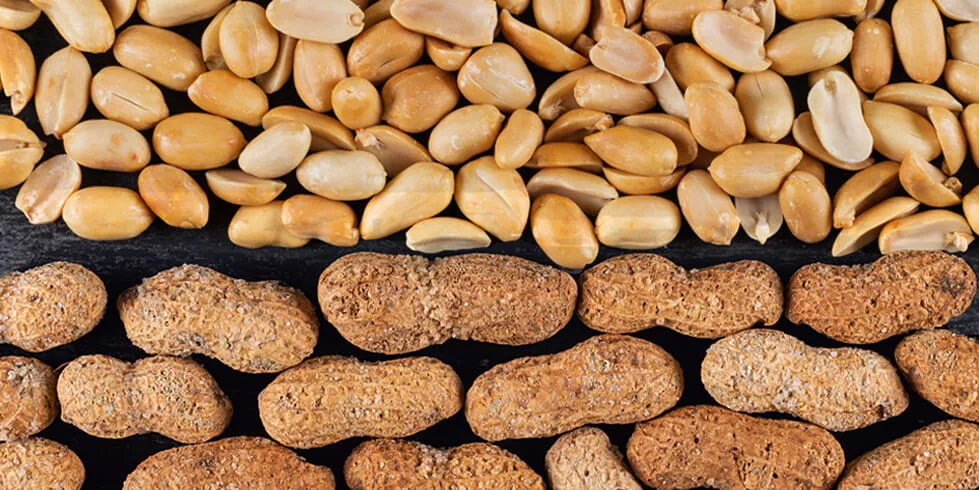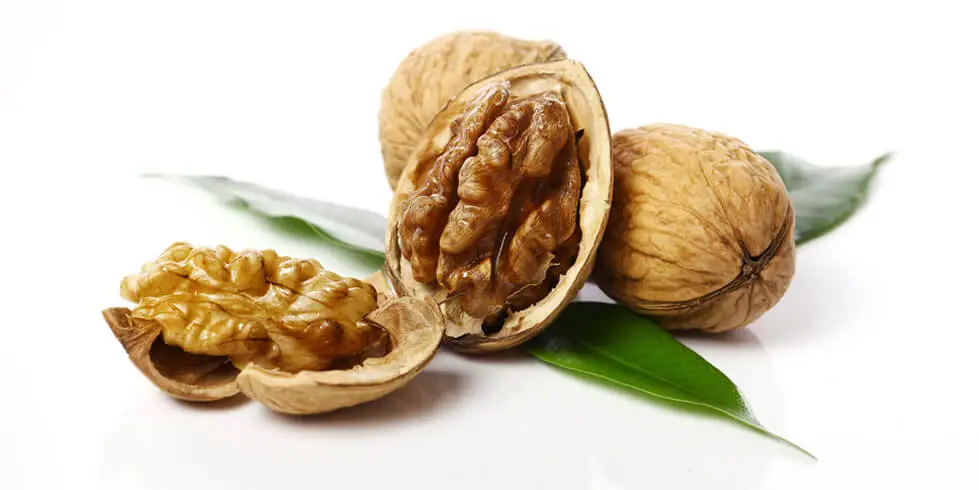Groundnuts, commonly known as peanuts, belong to the genus Arachis in the family Fabaceae. Their scientific name is Arachis hypogaea, and they are a nutrient-rich food consumed worldwide.
Peanuts come in various forms, including boiled, roasted, or ground into peanut butter or flour. They’re not just tasty but offer several health benefits.
This article explores the uses and benefits of peanuts, making it a must-read for anyone interested in incorporating healthier food choices into their diet.
Peanuts and Their Global Appeal
Peanuts are widely grown in regions like the USA, China, South America, Africa, and India. Despite being classified as legumes (beans), peanuts are often referred to as “nuts” due to their similar nutrient profile.
In the United States, peanuts are the most commonly consumed “nut,” available year-round in raw, roasted, shelled, or unshelled forms.
Popular Uses of Peanuts
Peanuts are versatile and used in various ways around the world. Popular peanut products include:
- Peanut butter
- Peanut oil
- Candies, chocolate, and snack bars
- Peanut flour, used in baking
In the US, peanut butter and jelly sandwiches are an iconic snack, and peanuts are a staple ingredient in many baked goods and candies. The global cultivation of peanuts includes over 300 varieties such as Virginia, Valencia, and Georgia Runner.
Nutritional Value of Peanuts
Peanuts are loaded with essential nutrients such as:
- Proteins: Essential for muscle growth and repair.
- Healthy fats: Containing both monounsaturated and polyunsaturated fats, which support heart health.
- Vitamins and minerals: Including B vitamins (biotin, niacin), vitamin E, and minerals like copper, magnesium, and phosphorus, essential for energy production and overall health.
Potential Health Risks
While peanuts offer many health benefits, there are some risks to consider:
- Aflatoxin Contamination: Peanuts can sometimes be contaminated with aflatoxins, toxins produced by mold, especially when stored improperly.
- Allergies: Peanut allergies are one of the most common and can be life-threatening. Individuals with peanut allergies should avoid peanuts and peanut-containing products.
- Phytic Acid: Peanuts contain phytic acid, which can inhibit the absorption of certain nutrients like iron and zinc. This is generally not a concern for people with a balanced diet but can be an issue in regions where grains and legumes are dietary staples.
Health Benefits of Peanuts
In this article on the health benefits of peanuts, we discuss the maximum health benefits of peanuts.(2)
Boosts energy
Peanuts are a rich source of protein and fiber. These assist in the conversion of carbohydrates into energy. The fiber and protein combination also slows down the digestive process, which releases steady energy into the body. It makes them an excellent snack for times when you are feeling tired.
Promotes heart health
They contain resveratrol, a powerful anti-ageing compound that gives you clear, glowing skin. They are rich in B vitamins, which can be converted into biotin for hair growth.
Helps prevent gallstones
Gallstones are the small stones that develop in the gallbladder, as their name suggests. Women, those who are overweight and over 40, and those who eat a diet high in calories and refined carbohydrates are more likely to develop gallstones.
According to a study, consuming a lot of nuts, especially peanuts, reduces the risk of gallstones by 25%. Consume at least one serving to lower your risk of gallstones.
Supports weight loss
Peanuts can support weight loss through multiple mechanisms. Fiber and protein in them promote feelings of satiety. They are indeed high in calories, but some fat in them is resistant to digestion and is not absorbed by the body.
Consuming them also increases resting energy expenditure, increasing overall calorie burn. You may lose weight more quickly if you include peanuts in your meal plan. (3)
Has antioxidant properties
Peanuts are rich in numerous plant compounds and antioxidants. Most of these compounds are often overlooked when thinking about what to eat, but they are essential for many critical bodily functions.
Copper is necessary because it is a vital component of enzymes that produce energy and control nerve function. There are several health problems associated with not getting enough copper.
While eating enough copper may reduce the body’s level of bad cholesterol, even a slight copper deficiency may increase the risk of heart disease. Peanuts have one microgram of copper per quarter-cup serving, which is 47% of the copper you need daily.
Good for skin and hair
The monounsaturated fats and vitamins in peanuts make them beneficial for the skin. They also have vitamins C and E, which make you look younger for longer. They contain resveratrol, a powerful anti-ageing compound that gives you clear, glowing skin. They have a lot of B vitamins, which can be turned into biotin to make hair grow.
Fight Depression
Peanuts contain a lot of tryptophan, a substance required to produce serotonin. It is an essential brain chemical that affects mood regulation. The serotonin released from brain nerve cells may reduce when you’re depressed. Its production can be increased with the aid of tryptophan, improving mental health.
Lowers blood sugar levels
Blood sugar levels do not increase when peanuts are added to a meal. They have a glycemic index score of 14, which is relatively low, and that’s why they are considered a diabetes superfood. They also aid in lowering blood sugar levels due to the fiber in them. Magnesium and other beneficial oils are also present, which are essential in this regard.
One study suggests that eating peanuts in the morning may help control blood sugar levels for the remainder of the day. It has also been demonstrated to lower participants’ risk of developing type 2 diabetes because peanuts have a lot of good nutrients, including monounsaturated fats, which increase the risk of miscarriage by a lot.
Folate dramatically lowers the risk of abnormalities and the growth of neurological or even physical conditions.
Lowers the risk of Alzheimer’s disease
Niacin, a B vitamin, and vitamin E are abundant in peanuts. Niacin from food has been shown in a study to slow the rate of cognitive decline in adults over 65. Even though supplements are less effective, consuming a lot of vitamin E-rich foods, such as peanuts, may reduce the risk of Alzheimer’s by up to 70%. For the benefit of brain health, peanuts make a great combination.
Rich in Biotin
Biotin, also known as vitamin H, vitamin B7, or vitamin B8, is a nutrient in large quantities in peanuts. Biotin is water-soluble and dissolves easily upon entering your body. It is essential during pregnancy and involves many chemical reactions in the body because even a slight biotin deficiency increases the risk of congenital disabilities.
Biotin may also help treat diabetes, multiple sclerosis, and some brain disorders, according to research. Adults should consume at least 30 mcg of biotin per day. A quarter cup of peanuts contains more than 26 micrograms of this vital mineral.
Builds Muscles
If you want to build lean muscle, maintaining a healthy diet is just as important as going to the gym frequently. A bodybuilding diet should include peanuts as a supplement. There is no cholesterol in them, and they have a good amount of proteins, fiber, and minerals that bodybuilders need.
They also have a lot of calcium, which is vital for the growth and development of bones. Did you know that one of the most effective ways to build muscles is by doing daily pull-ups? There are numerous health advantages as well, not just for the forces.
Increased Life Span
You may live longer if you consume peanuts. A study found that those who frequently eat nuts, especially peanuts, have a lower risk of dying from any cause than people who do not. It is impossible to pinpoint the exact cause of the lower death rates because the study was based solely on observations, but peanuts are associated with them.
Good for Children
A higher level of nutrition is one of the advantages of peanuts for young children. Children grow and develop best when they get a lot of carbs, proteins, dietary fiber, vitamins, minerals, and other small amounts of nutrients.
You can reap the benefits of peanuts by serving them to your children for breakfast. Now that you know the benefits of eating peanuts every day, there are still some things to remember before making them part of your diet.
Excellent source of protein
Building and repairing muscles require protein, which is essential for all of us. The 20 amino acids we need are all in peanuts, which have 25.8 grams of protein per 100 grams and are a great source of protein.
Reduce your chances of having a stroke
Resveratrol and peanuts may lower the risk of stroke by changing how molecules work in blood vessels and making more of the hormone nitric oxide, which causes blood vessels to be more comprehensive.
Promote bone health
Peanuts have many phosphorus, calcium, and potassium, all needed to build strong bones. They are also high in manganese, which supports the production of enzymes that help the body maintain a healthy bone structure.
Boost your brain
You need B vitamins for a shopper’s brain, and peanuts provide just that. Niacin and vitamin B1 can also aid in the prevention of age-related cognitive decline and diseases such as Alzheimer’s, where peanut polyphenols can help with mood.
Improve vision
Zinc and peanuts help the body move vitamin A, which is needed for clear vision. Peanuts also contain vitamin E, which helps prevent age-related macular degeneration and cataracts.
Healthy fats
Peanuts have a lot of mono- and polyunsaturated fatty acids, which are good kinds of fat. There is also a small amount of saturated fat in peanuts; consequently, it is best to eat peanuts in moderation to get their optimal health benefits.
Anti-ageing
Collagen helps maintain youthful, supple skin and reduces age-related signs such as wrinkles, discolouration, and sagging. Peanuts are an excellent source of protein, an amino acid that aids in producing bovine serum and hair growth.
Varieties of Peanuts
The colour of peanuts ranges from red to brown, and they typically have a plump appearance. Peanuts, which have 18 milligrams of sodium per 100 grams of raw, unsalted nuts, are naturally low in sodium. A 30 g serving contains only 5.4 milligrams of salt. The nutrients in peanuts, which promote growth and provide energy, give them their nutritional value.
These include carbohydrates, lipids, proteins, vitamins, minerals, some organic acids, and purines. In many nations worldwide, an estimated 30% of the population is undernourished.
People can avoid becoming undernourished by eating peanuts, which are rich in protein and essential amino acids. Peanuts also have lipids and carbohydrates, energy-rich substances that can help meet the body’s primary energy needs. This article examines the chemical makeup of dry-roasted, unsalted peanuts and their value as a nutritious food source.
Raw and roasted peanuts
Despite being able to consume unroasted peanuts, they do not have the same flavour as roasted peanuts. Despite their rarity, raw peanuts pose a significant risk due to aflatoxin, a toxin produced by a fungus.
Roasting the peanuts usually kills the fungus. Liver diseases can be brought on by eating contaminated peanuts. It has been discovered that consuming peanuts in any form causes an allergic reaction, some of which are severe, in 0.4% to 0.6% of people, particularly children.
These can develop in childhood or be caused by a family history of peanut allergies. Nut consumption reduces the risk of heart disease. People who consume nuts more frequently than four times per week have a 37% lower risk of developing heart disease and other cardiovascular diseases than those who do not consume nuts. Peanuts play an essential role in weight loss.
The positive effects of nuts, including peanuts, have been well documented by epidemiological studies. Although peanuts are rich in fat, they can still include in the diet for weight loss.
Nutrients
It is important to note that peanuts contain certain micronutrients. Micronutrients inhibit your ability to absorb nutrients, which reduces their nutritional value. Among the nutrients found in peanuts, phytic acid is particularly noteworthy. It contains all edible seeds, nuts, grains, and legumes. In peanuts, it ranges from 1–5,
It makes it harder for iron and zinc to get into peanuts, which makes them a little less healthy. It is usually not a concern in well-balanced diets or among regular meat eaters. However, this can be a problem in developing countries where the primary food sources are grains or legumes.
Why are peanuts not good for your health?
Toxic Poison
Peanuts can sometimes be contaminated with a type of mould that produces toxins. Loss of appetite and yellowing of the eyes are the main signs of poisoning, which are also signs of liver problems. Severe poisoning can lead to liver failure and liver cancer.
The risk depends on how the peanuts are stored. It thrives in warm and humid conditions, especially in the tropics. The best way to keep peanuts from getting contaminated is to keep the temperature and humidity low while storing them and to dry them properly after harvest.
Allergies
Peanuts are among the most commonly allergenic foods. Allergies to them are estimated to affect about 1% of Americans. Peanut allergies are potentially life-threatening and sometimes considered the most severe allergens. People with this allergy should avoid peanuts and all peanut products.
While eating peanuts daily benefits your health, other nuts are also fantastic for your body.
Macronutrients
The following argument is that peanuts are a healthy food because they contain proteins, fats, and carbohydrates. However, not all of the necessary amino acids are present in the protein. The next problem is fat, which contains a lot of linoleic acid and omega-6 fatty acids.
Omega-6 fats are linked to inflammation and a wide range of illnesses, including cancer, autoimmune diseases, heart disease, diabetes, high blood pressure, and obesity. They also compete with beneficial omega-3 fats, which are different from what you want.
Highly lectin-rich
Peanuts also have a lot of lectins, which are bad for your health and can cause inflammation, weight gain, memory loss, joint pain, diabetes, and other common health problems.
Healthy substitutes
Roasted and lightly salted nuts, like peanuts, taste great. They should also be safe for most people if they only use them occasionally and in small amounts.
Conclusion
Peanuts are a powerhouse of nutrition, offering benefits ranging from boosting energy to promoting heart health. Whether you enjoy them roasted, boiled, or as peanut butter, peanuts are a simple and delicious way to add essential nutrients to your diet. However, be mindful of potential allergies and storage conditions to fully enjoy their health benefits.
For more detailed information, you can explore these studies on the health benefits of peanuts:
Incorporate peanuts into your daily routine and enjoy their numerous health benefits while contributing to your overall well-being!
The Author’s Message
I hope you enjoyed my blog about Health Benefits of Peanuts. I’m not saying that peanut is the perfect food for everyone, but there are many health benefits. I encourage you to try peanut to see if it helps your health. If you’re uncertain about what to do, I would love to hear from you through this blog post.
Thank you for reading. I’m always excited when my blog posts can provide helpful information on a topic like this!



